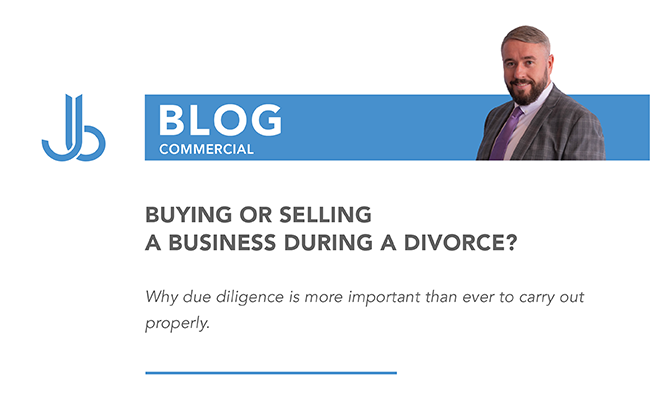

When personal and business lives collide, stress can multiply. For owners navigating a divorce while also buying or selling a business, good intentions aren’t enough—due diligence is. Deals can stall, valuations can wobble, and small oversights can turn into costly disputes. The right checks, done early and done well, protect value, reduce risk, and keep everyone clear on who owns what and who gets what.
This isn’t about making things adversarial. It’s about clarity. Divorce introduces legal duties of disclosure, potential claims over assets, and questions about future income. A transaction—whether buying or selling—adds another layer of complexity. Solid due diligence brings these strands together so decisions are informed, timelines are realistic, and negotiations are grounded in facts.
Why divorce changes the deal
In a standard transaction, due diligence tests ownership, finances, contracts, people, risks, and tax. In a divorce, the same questions come with extra angles:
-
Ownership & control: Is the business a marital asset? Are shares held in personal names, jointly, or via a trust? Are there pre/post-nuptial agreements, shareholder agreements, or director service contracts that affect control or transfer?
-
Valuation pressure: Divorce can create time pressure. Rushed sales often depress price. Buyers may seek a discount if they sense urgency; sellers may hold out for a higher figure to offset settlement expectations.
-
Disclosure duties: Family court financial disclosure runs alongside corporate disclosure. Inconsistencies between the two can harm credibility and jeopardise both the settlement and the deal.
-
Cash flow & covenants: Maintenance obligations and any interim financial orders may affect drawings, dividends, and loan covenants—issues a buyer, lender, or investor will probe.
-
Future claims: If the divorce isn’t final, there’s a risk of a later claim against sale proceeds. Buyers and funders will ask how that risk is being ring-fenced.
Practical steps to strengthen your position
-
Map the asset picture early
List shareholdings, directorships, options, loans, intellectual property, key contracts, and pensions. Identify what’s clearly non-marital, what’s arguably marital, and where evidence is thin. This informs both negotiations and how you present the business. -
Align your disclosures
Ensure the figures in your family law Form E, management accounts, and data room all reconcile. If assumptions differ—e.g., normalised earnings versus historic drawings—explain why in writing. -
Get a robust, independent valuation
A specialist valuer can address marketability, minority discounts, and personal goodwill. Agree the valuer’s remit with both sides where possible to reduce later challenges. -
Stabilise key contracts
Shore up customer and supplier agreements (terms, renewals, change-of-control clauses). In a sale, this supports price. In a purchase, it reduces the risk you inherit someone else’s instability. -
Protect continuity with people plans
Divorce can distract leaders. Put in place delegation notes, board minutes, and continuity plans for sign-offs. Buyers like resilience; courts like realism about future earning capacity. -
Structure with settlement in mind
Consider whether a share buy-back, deferred consideration, earn-out, or dividend policy better supports the overall settlement. Tax advice is essential here, particularly around Business Asset Disposal Relief and transfers between spouses. -
Use targeted protections in the SPA or investment documents
-
Warranties confirming there are no undisclosed family claims against shares or proceeds.
-
Covenants to keep proceeds in a designated account until settlement mechanics are agreed.
-
Indemnities if any ongoing family law order could affect title or distributions.
-
Escrow/retention to manage timing risks while avoiding deadlock.
-
-
Manage lender and investor optics
Provide a short, factual note for funders explaining the divorce timeline, disclosure status, and any court directions. Confidence comes from transparency.
What “good” due diligence looks like here
A strong, divorce-aware due diligence pack typically includes:
-
Company constitutional documents, cap table, shareholder and cross-option agreements.
-
Board and shareholder minutes covering any separation-related decisions.
-
Up-to-date management accounts, cash flow forecasts, debtor/creditor ageing, and evidence of normalised trading.
-
Key contracts with change-of-control and assignment clauses clearly flagged.
-
HR schedules (senior roles, notice periods, restrictive covenants).
-
IP register and assignment deeds (especially where founders created IP personally).
-
Tax position summaries and any HMRC correspondence.
-
A clear statement on the family law position: stage reached, disclosure exchanged, whether a financial remedy order is anticipated, and how sale proceeds will be handled.
Presenting this early shortens negotiations, reduces price chips, and reassures both the court and counterparties that the transaction is being handled responsibly.
Common pitfalls to avoid
-
Rushing to sign before disclosure is complete, inviting challenges to value or title.
-
Mixing personal and business funds, blurring the audit trail for settlement and warranties.
-
Underplaying personal goodwill, inflating value where the owner’s ongoing involvement is uncertain.
-
Ignoring tax timing, especially around transfers between spouses and disposal reliefs.
-
Letting narratives diverge between family and corporate documents—credibility matters.
The bottom line
Buying or selling during a divorce is achievable—and often sensible—when the process prioritises clarity. Thoughtful due diligence doesn’t slow you down; it speeds you up by preventing last-minute surprises, aligning the legal stories, and protecting value.
If you’re weighing up a transaction alongside a separation, Johnson & Boon can help you build the right team—family, corporate, tax, and valuation—so you can move forward with confidence.
Ready to talk through your options? Get in touch and one of our friendly solicitors will call you back. Call us today on 0151 637 2034 or email us at info@johnsonandboon.co.uk

